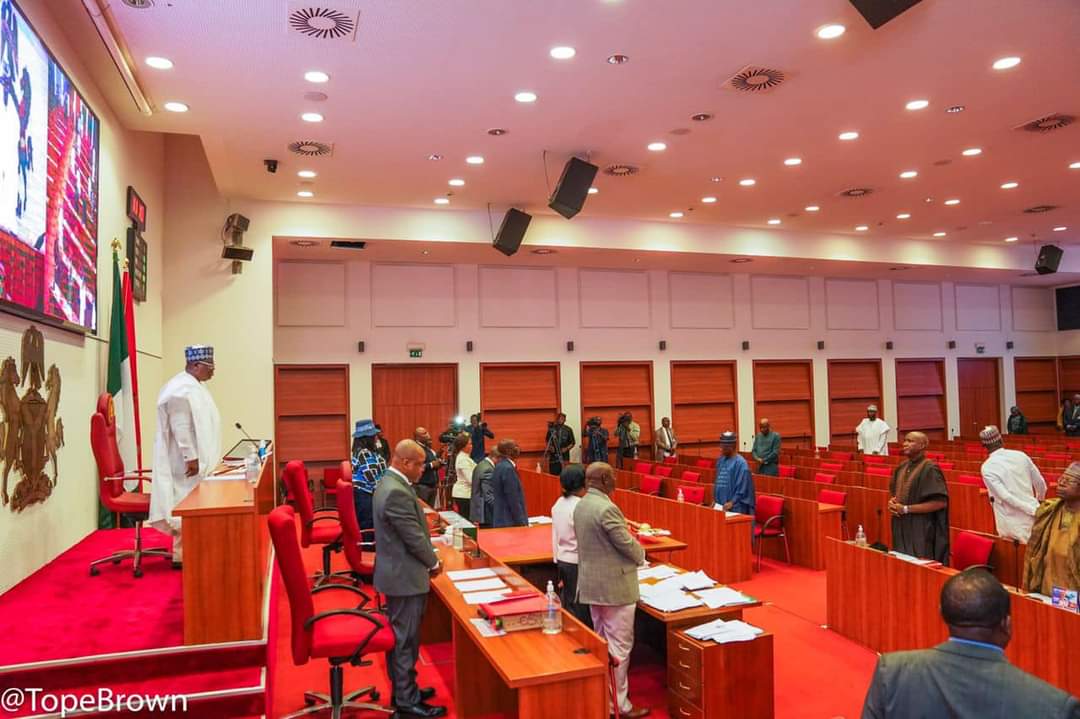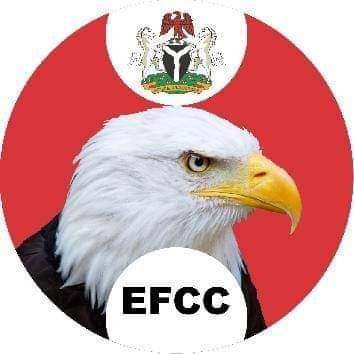Politics
10th NASS: ‘Why Speakership Shouldn’t Be Zoned To North West’

There are strong indications that members of the 10th House of Representatives may resist any attempt to zone the Speakership of the lower legislative chamber to the North West geopolitical zone.
This is even coming amidst intense lobbying by power brokers within the All Progressives Congress (APC) to push for a candidate from North Central.
Already, a meeting of the APC National Executive Committee (NEC), where a position will be taken on the zoning arrangement for presiding officers of both chambers of the National Assembly has been fixed for this month.
Meanwhile, key APC members from the North West, have indicated interest for the office of Senate President and Speaker of the House of Representatives.
From the same North West, former chairman of the House Committee on National Intelligence in the 8th Assembly, Aminu Jaji from Zamfara state; Tajudeen Abbas from Kaduna and Majority Leader of the House, Alhassan Ado Doguwa from Kano state, are already campaigning to replace Femi Gbajabiamila.
A member of the House of Representatives representing
Owo/ Ose Federal Constituency of Ondo State in the Green Chamber, Timehin Adelegbe, who spoke to newsmen in Abuja, faulted the agitation for the slot of Speaker of the 10th National Assembly by the North West APC members.
Adelegbe noted that the zone has produced four Speakers of the House of Representatives since 1999 and should therefore be precluded from the race.
The lawmaker recalled that the North West during the tenure of Chief Olusegun Obasanjo produced Salisu Buhari and Ghali Na’Abba while the incumbent governors of Katsina and Sokoto States, Aminu Masari and Aminu Tambuwal had also occupied the position of Speaker.
He said: “Well, naturally, it is a very simple thing if we don’t put emotions into all those things. If you look at it generally, in the north there are three regions, in the south there are three regions. South-west has produced the President, naturally Speaker can not come from South-west. North-east has picked the Vice President, naturally the Speaker can not come from that area which means from the two bipolar level of south and north, two regions have left.
“So, in the north, we are left with north-west and north-central. And looking at the advent of democracy till today, north-west has produced four speakers|”.
They produced Tambuwal, they produced Salisu Buhari, they produced Ghali Na’aba and they have produced Aminu Masari; that is north-west. So, morally this should not be a big thing.
“Yes, north-west has contributed hugely to the electoral victory of Asiwaju. Can we say because of electoral victory say we are going to block out south-east and south-south from taking leadership of National Assembly? No. “
Honourable Adelegbe further suggested that the APC NEC should consider zoning the position of Speaker to the North Central geo- political zone.
“In fact, if I am to advice, this is very simple, there is no way again that since north-east has picked Vice President, south-west has picked President, naturally the Senate President should either come from south-south or south-east. And since north-west has produced four speakers before, they should look into the area of Deputy President of the Senate and allow north-central which has enjoyed the luxury of being President of the Senate before now to taste the speakership. There shouldn’t be too much emotions in this. This is very simple.”
Politics
Rivers Political Crisis: PANDEF Urges Restraint, Mutual Forbearance

Accordingg to the statement, the Board and National Executive Committee of PANDEF, noted with very grave concern the recent spate of political developments in Rivers State.
“Regrettably, these developments have now degenerated into the decision of the Rivers State House of Assembly to commence impeachment proceedings against the governor and deputy governor.
“This is a deeply disturbing situation that demands urgent attention in order to forestall further escalation and breakdown of law and order.
“This concern is heightened by the critical importance and strategic centrality of Rivers to the Niger Delta region and to the broader socio-political stability and economic wellbeing of Nigeria as a whole”, the statement said.
The Forum called on all parties involved in the resurgent political imbroglio to sheathe their swords and embrace peace.
“This should be guided by the principles of give-and-take, dialogue, tolerance, and political equanimity.
“All stakeholders must place paramount importance on peace, development and the welfare of the people of Rivers.
“We must now focus squarely on good governance and development of the state,” the Forum said.
PANDEF commended President Bola Tinubu, the leadership of the All Progressives Congress (APC), respected elders of Rivers State, and other well-meaning Nigerians for their previous and ongoing efforts aimed at restoring peace and stability in the state.
Politics
Wike’s LGAs Tour Violates Electoral Laws — Sara-Igbe

Speaking in an interview on Saturday, January 10, Chief Sara-Igbe alleged that the minister had flouted regulations governing the commencement of electioneering campaigns by moving from one local government area to another to galvanise political support.
According to him, the action amounted to a clear breach of electoral guidelines being carried out with a troubling sense of impunity that could undermine the rule of law.
“Wike has violated the electoral laws of campaigning by going from local government to local government to talk to the people. He travelled from one local government to another. As a result of his visits to local government areas, he has broken election regulations and continues to do all these things without fear of repercussions”, Chief Sara-Igbe said.
The remarks came as Chief Wike was set to round off a state-wide “thank-you” tour that covered all 23 local government areas of Rivers State.
Although the minister had described the tour as an appreciation visit following support for President Bola Tinubu in the 2023 general elections, critics say the engagements have assumed an overtly political character.
Observers note that during several stops, including recent visits to Andoni and Bonny local government areas, the minister rallied supporters across party lines under what he termed a “Rainbow Coalition,” a move widely interpreted as part of a broader political strategy.
During these engagements, Chief Wike was also reported to have made remarks perceived as a veiled challenge to the authority of Governor Siminalayi Fubara, while repeatedly referencing the 2027 elections and urging supporters to prepare to “correct the mistake” of 2023.
Chief Sara-Igbe warned that allowing such activities to continue unchecked could erode public confidence in Nigeria’s electoral process and called on relevant authorities to enforce existing laws without fear or favour.
Politics
EFCC Alleges Blackmail Plot By Opposition Politicians

The Commission, in a statement on Wednesday, claimed that there were plans by the same group to escalate a smear campaign against its Chairman, Ola Olukoyede, to frustrate ongoing investigations and prosecutions involving prominent individuals.
The statement endorsed by the agency’s spokesman, Mr Dele Oyewale, claimed that the action was intended to distract the Commission through unfounded allegations of political bias in the discharge of its duties.
The EFCC warned that it would not stand by and watch “those recruited into this ignoble enterprise” or allow any attempt to derail it from “the patriotic task of improving public accountability in Nigeria.”
The Commission made it clear that those recruited into this venture were under close watch, adding that it would not tolerate any attempt to distract it from the patriotic task of improving public accountability in Nigeria.
“The EFCC reiterates its non-political stance in all its activities. Facts on the ground clearly show that any political actor belonging to the ruling party or opposition party, with corruption baggage, has no hiding place from the operational radar and dynamics of the Commission.
“As a matter of fact, several strong members of the ruling and opposition parties are either facing trial before the courts or being investigated by the Commission.
“It is needful that Nigerians appreciate the fact that the Commission is keeping faith with its Establishment Act in all its operations.
“Therefore, the Commission reiterates its commitment to justice, without fear or favour, in the fulfilment of its mandate,” the statement pointed out.

